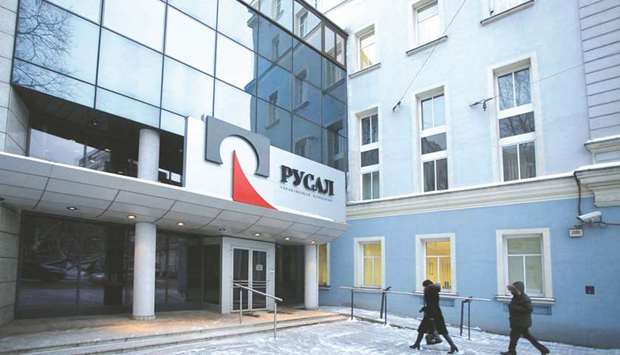United Co Rusal, the world’s largest aluminium producer outside China, said discussions over the Russian company investing in a new US plant predated the imposition of American sanctions.
In April last year, the US imposed sanctions on billionaire Oleg Deripaska and his businesses, including Rusal, causing turmoil in the global aluminium market.
The Treasury lifted restrictions on Rusal in late January after Deripaska agreed to reduce his ownership and relinquish control of the firm.
Several months later, Rusal said it planned to invest as much as $200mn in a Kentucky plant being built by closely held Braidy Industries. While Deripaska remains under sanctions, some US lawmakers have also called for a review of Rusal’s investment in the project.
“The project in Kentucky was discussed long before Rusal was sanctioned,” Deputy chief executive officer Oleg Mukhamedshin said in an interview in St Petersburg on Friday. “We just had to put the talks on hold after sanctions.”
Rusal will be a minority investor in the $1.7bn project, and will also supply the US mill with aluminium from its new Taishet plant in Siberia, he said.
“The project wasn’t a Rusal initiative,” Mukhamedshin said. “We were invited to participate and we found it interesting. For us it is industrial partnership as gives an opportunity to sell our advanced products on the American market.”
The market in the US, the world’s No 2 consumer of the metal, has a 2.5mn-tonne deficit of refined aluminium, according to the deputy CEO.
The Kentucky mill will sell rolled aluminium to the auto industry, giving Rusal a better foothold as carmakers use more of the lightweight metal to improve fuel efficiency. “Someone has to cover this deficit,” he said.
Braidy CEO Craig Bouchard said in April that he isn’t worried about the perception of buying metal from the Russian company and said the focus should be on the help the venture will give to a US region hard hit by the closure of coal mines.
The only risk Rusal sees is that the project needs to get bank financing, said Mukhamedshin.
Rusal is also seeking to recapture lost market share, after sanctions caused it to miss out on lucrative contracts for semi-finished aluminium products, which previously generated about half of its sales.
“We plan to restore our market share of high-value-added products sales by 2020 after the new contracting season, that will be in September through October,” he said.
The deputy CEO said that while Chinese producers replaced some of its volumes last year, customers that prefer “greener aluminium” are still choosing Rusal, which sources most of its electricity from hydro-power stations.
Mukhamedshin also hopes the aluminium price will recover to $1,900 per tonne as the market outside China is still in deficit.
Rusal was hurt in the first quarter as weaker global growth and the US-China trade war weighed on prices.

Employees enter the headquarters of United Co Rusal in Moscow. Rusal is seeking to recapture lost market share, after sanctions caused it to miss out on lucrative contracts for semi-finished aluminium products, which previously generated about half of its sales.
